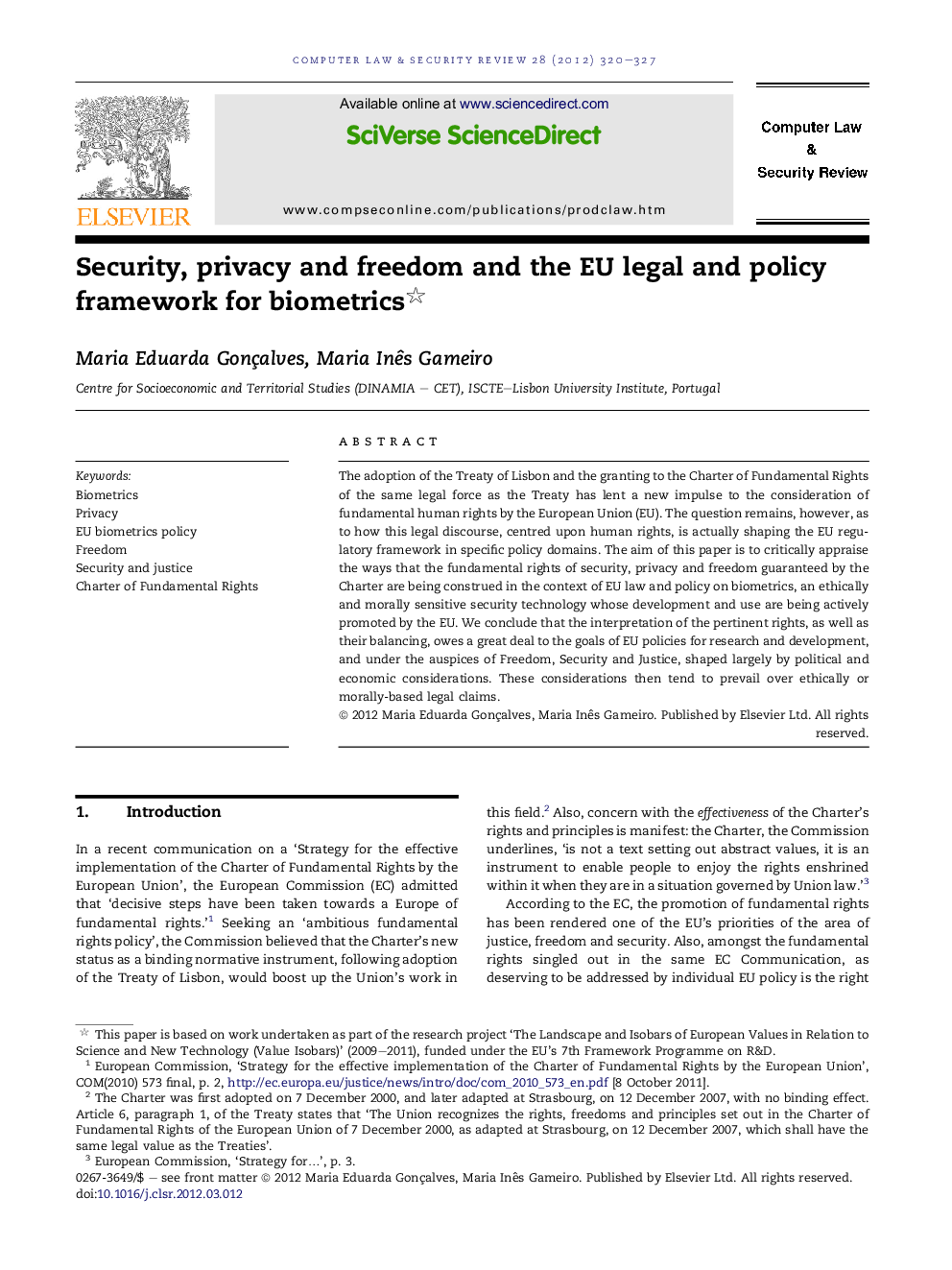| Article ID | Journal | Published Year | Pages | File Type |
|---|---|---|---|---|
| 465532 | Computer Law & Security Review | 2012 | 8 Pages |
The adoption of the Treaty of Lisbon and the granting to the Charter of Fundamental Rights of the same legal force as the Treaty has lent a new impulse to the consideration of fundamental human rights by the European Union (EU). The question remains, however, as to how this legal discourse, centred upon human rights, is actually shaping the EU regulatory framework in specific policy domains. The aim of this paper is to critically appraise the ways that the fundamental rights of security, privacy and freedom guaranteed by the Charter are being construed in the context of EU law and policy on biometrics, an ethically and morally sensitive security technology whose development and use are being actively promoted by the EU. We conclude that the interpretation of the pertinent rights, as well as their balancing, owes a great deal to the goals of EU policies for research and development, and under the auspices of Freedom, Security and Justice, shaped largely by political and economic considerations. These considerations then tend to prevail over ethically or morally-based legal claims.
